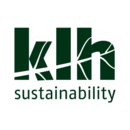Environment offences: Definitive guideline
To the question “Do you comply with your legal requirements?” companies are most likely to respond “Yes of course”.
However when you start looking for evidence of compliance, often the initial enthusiastic “Yes” turns out to be riddled with caveats: “Yes but legislation is so convoluted it is difficult to demonstrate compliance in practice” or “Yes because I haven’t been prosecuted so far so I must be doing the right thing” and even “Yes but anyway a fine costs less than complying with regulations…”.
A large number of companies do not invest sufficient resources to monitor legal compliance in their organisation either because they do not fully understand their risks or do not care due to the perceived lack of consequences for breaching legislation.
This may change with the introduction of the Environment offences: Definitive guideline, which came into force in July 2014. The guideline is a 12-step framework courts use to hand out fines in a consistent and transparent way. The fines vary according to the turnover, level of culpability, harm caused and any potential aggravating factors. The court will take into account the financial circumstances of the organisation to ensure the fine is proportionate so it has a real economic impact and acts as a deterrent to offend.
The guideline clearly states that “it should not be cheaper to offend than to take the appropriate precautions”. For example, companies with a turnover of over £50m that cause a category 1 environment offence deliberately will face a fine of up to £3m.
The legal penalties associated with breaching legislation are only the tip of the iceberg. Additional and greater financial impacts are likely to follow: negative publicity, legal costs, potential increase in insurance premiums and more importantly loss of contracts.
A poll carried out by the Cabinet Office and Social Enterprises UK in September 2014, surveying 2,070 British adults, revealed that three-quarters of Britons are less likely to buy from a business that damages the environment. Increasingly clients are becoming savvier about environmental and wider sustainability issues.
Until relatively recently, tenderers could score well if they were able to demonstrate basic environment compliance, this is not the case any more. Clients now expect to see evidence of sustainability best practice, and a conviction for breaching legislation will definitely be a show-stopper at the Pre-Qualification Questionnaire (PQQ) stage.
This article was created by --KLH Sustainability 28 January 2015.
[edit] Related articles on Designing Buildings Wiki
Featured articles and news
A case study and a warning to would-be developers
Creating four dwellings for people to come home to... after half a century of doing this job, why, oh why, is it so difficult?
Reform of the fire engineering profession
Fire Engineers Advisory Panel: Authoritative Statement, reactions and next steps.
Restoration and renewal of the Palace of Westminster
A complex project of cultural significance from full decant to EMI, opportunities and a potential a way forward.
Apprenticeships and the responsibility we share
Perspectives from the CIOB President as National Apprentice Week comes to a close.
The first line of defence against rain, wind and snow.
Building Safety recap January, 2026
What we missed at the end of last year, and at the start of this...
National Apprenticeship Week 2026, 9-15 Feb
Shining a light on the positive impacts for businesses, their apprentices and the wider economy alike.
Applications and benefits of acoustic flooring
From commercial to retail.
From solid to sprung and ribbed to raised.
Strengthening industry collaboration in Hong Kong
Hong Kong Institute of Construction and The Chartered Institute of Building sign Memorandum of Understanding.
A detailed description from the experts at Cornish Lime.
IHBC planning for growth with corporate plan development
Grow with the Institute by volunteering and CP25 consultation.
Connecting ambition and action for designers and specifiers.
Electrical skills gap deepens as apprenticeship starts fall despite surging demand says ECA.
Built environment bodies deepen joint action on EDI
B.E.Inclusive initiative agree next phase of joint equity, diversity and inclusion (EDI) action plan.
Recognising culture as key to sustainable economic growth
Creative UK Provocation paper: Culture as Growth Infrastructure.
Futurebuild and UK Construction Week London Unite
Creating the UK’s Built Environment Super Event and over 25 other key partnerships.
Welsh and Scottish 2026 elections
Manifestos for the built environment for upcoming same May day elections.
Advancing BIM education with a competency framework
“We don’t need people who can just draw in 3D. We need people who can think in data.”

























